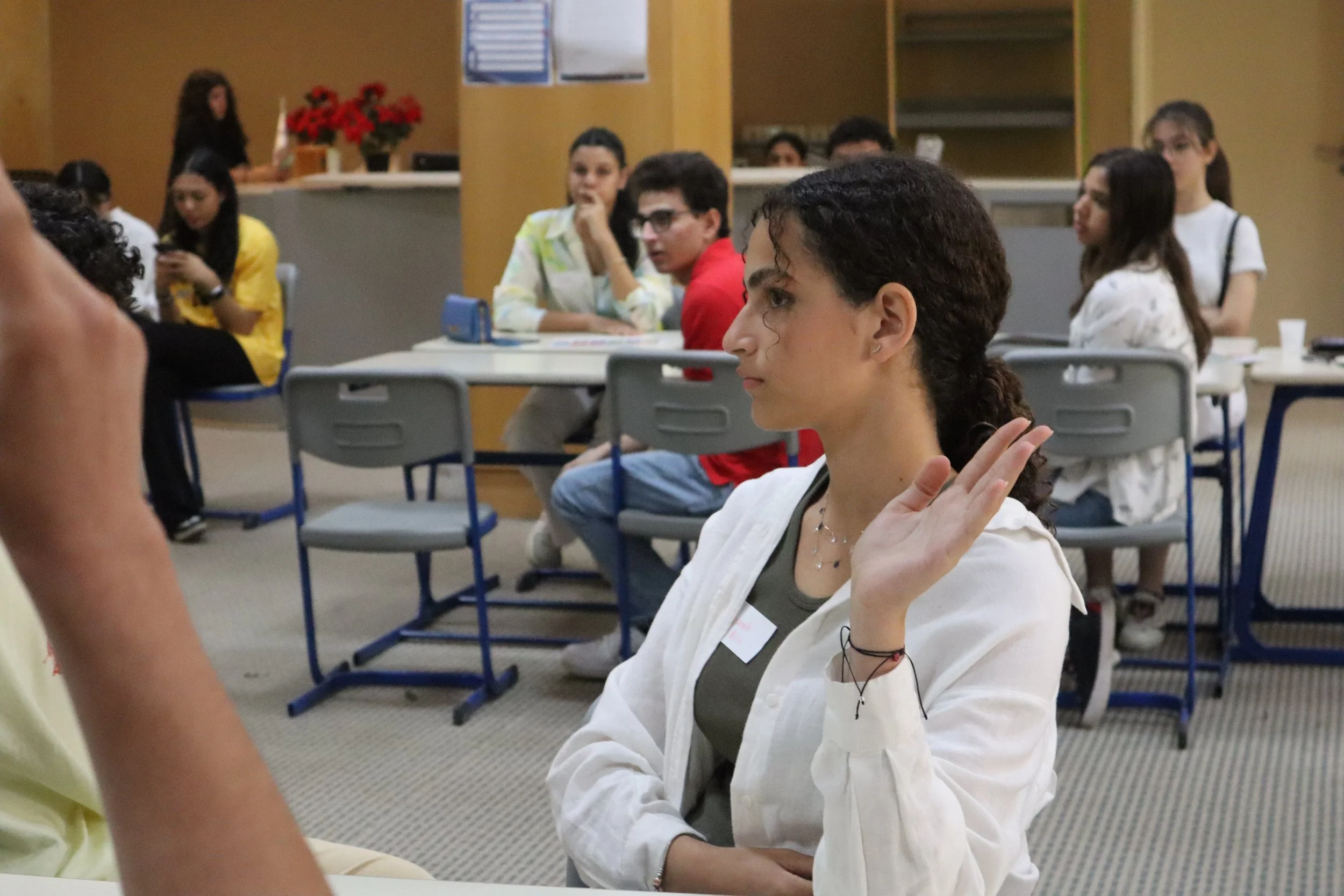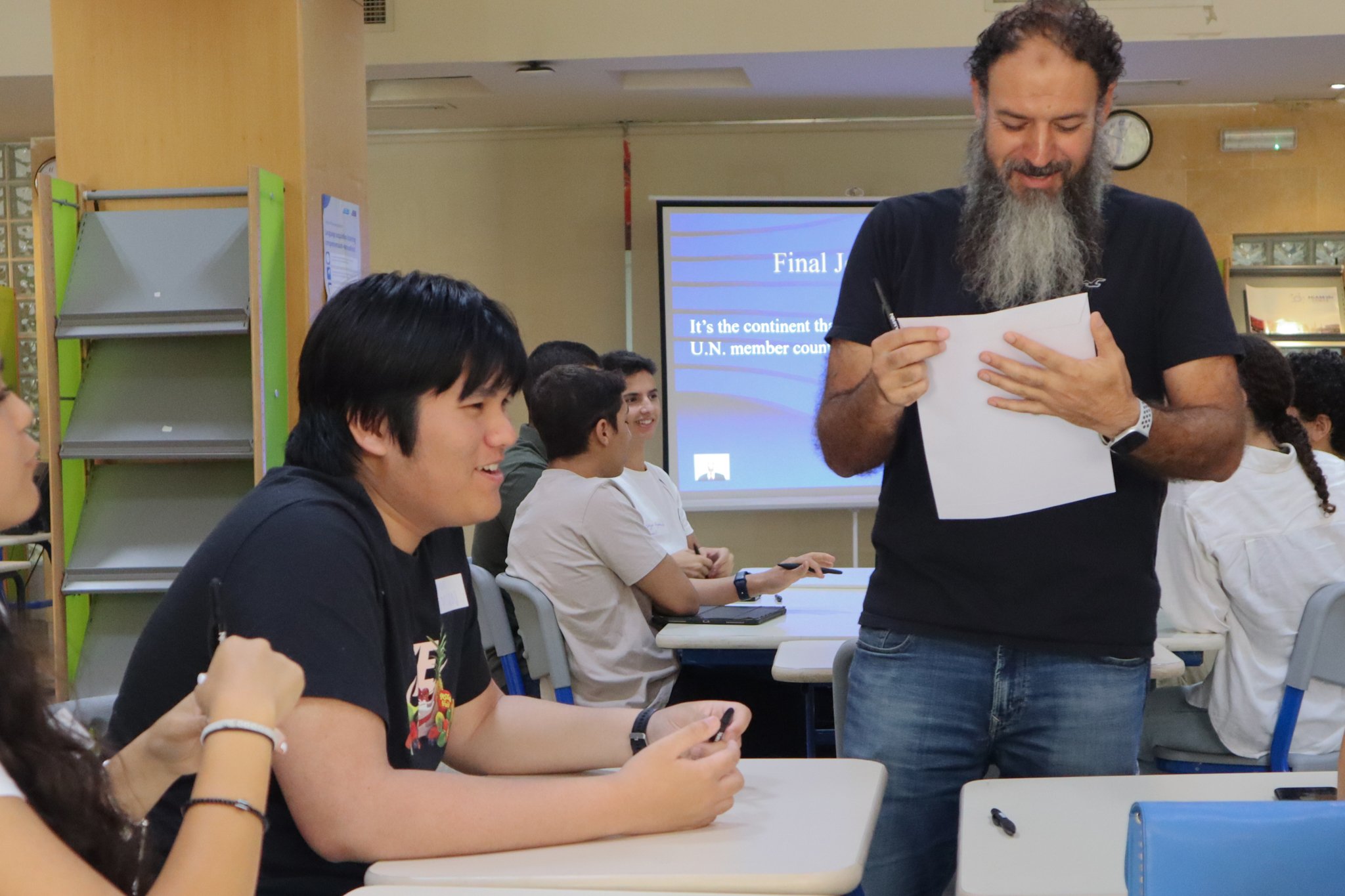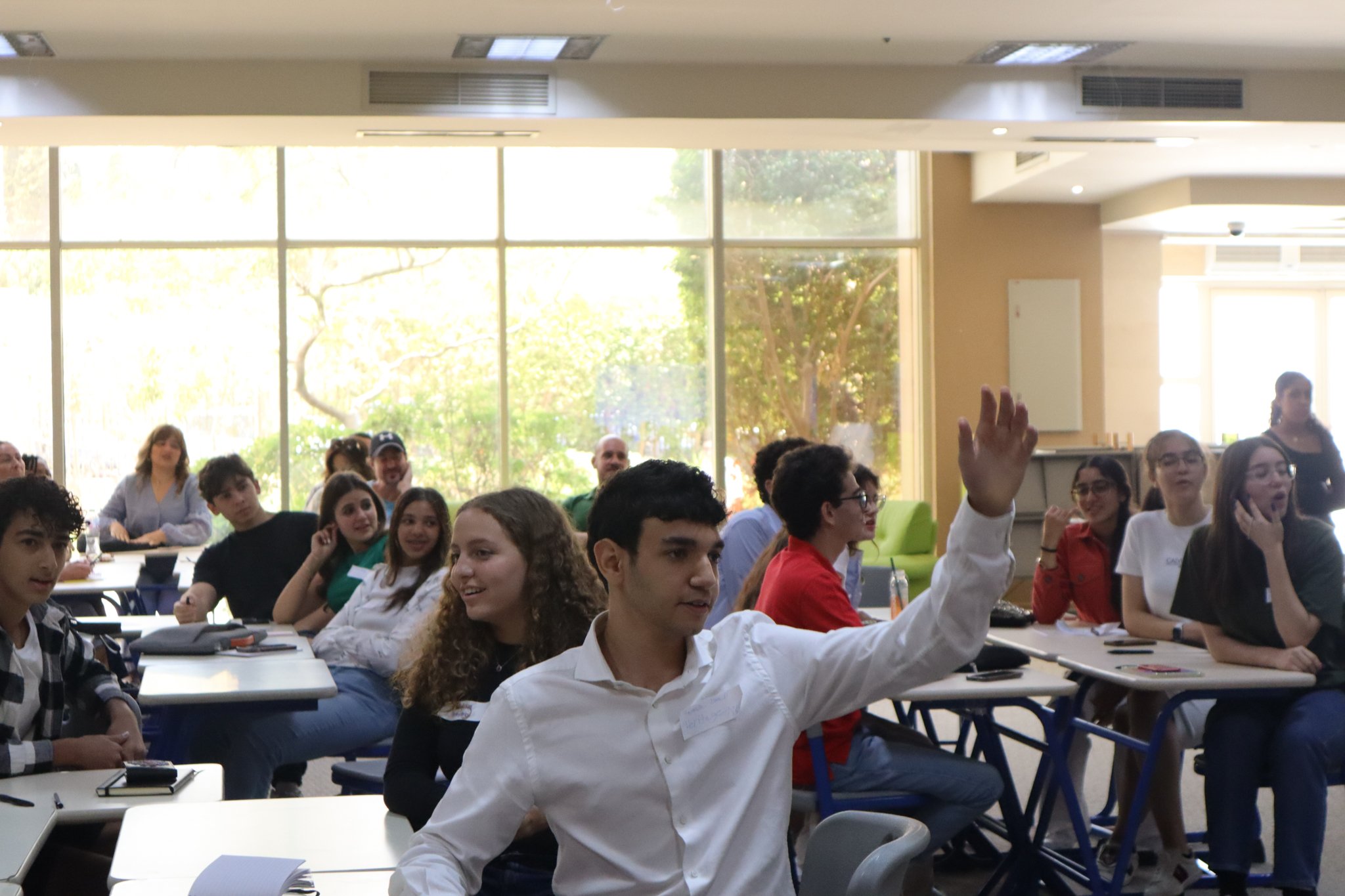Introduction to MUN:E
On May 21, 2023, HIAMUN launched and hosted the first-ever annual MUN:E event. As Mr. Karim, HIAMUN’s director, said, MUN:E also stands for MUN Egypt, MUN Exchange, MUN Executives, MUN Education, and MUN Evolution. MUN:E is a conference about uniting the MUN conferences of Egypt and collaborating with one another by hosting workshops through WhatsApp groups, providing suppliers, etc., to create more robust and innovative conferences.
Hayah’s Secretary General Abdulrahman El Dib shares the purpose behind MUN:E was creating a platform that could develop into a way for conferences to unite, exchange ideas, and guide each other to grow and develop the conferences, to raise the level of MUN around Egypt. He adds that with MUN:E they can connect the secretariats through the conferences, and as it grows through the years, MUN’s growth would increase, and students would be able to attend high-level conferences.
Alaa Hussein, HIAMUN’s Deputy Secretary General, says she is excited for MUN:E’s future. She shares her thoughts on the future, expecting “MUN:E to create official unified practices that all conferences in Egypt will abide by,” which will “hopefully lead to an increase in the standard and quality of MUN conferences in Egypt.” Jannah Tarek, HIAMUN’s Deputy Secretary General, adds her thoughts, sharing that MUN:E is “a chance for everyone to talk about different aspects of MUN in Egypt in general” and it’s “a way of communication between all the secretariats.” She expresses her perspective of the event happening over the course of several days in order to be able to thoroughly discuss and focus on the details of developing the MUN conferences in Egypt. Jannah expects that MUN:E will be the reason for the unified and stronger MUN conferences in Egypt.
Participating schools were Heritage, CES, TBS, AIS, NIS, and Alson. Each school’s attending representatives contributed interesting suggestions that sparked the discussions and brought great ideas to the table.
Jeopardy
As the forum begins, the representatives of the schools are gathered, nervous, and making small talk. Teams were randomly created; each group consisted of representatives from different schools, and they joined to play an amusing and rousing game of Jeopardy. The game lightened the mood and broke the awkwardness with fun questions that excited everyone to answer and help their team win. Nagham Sharaf from TBS said the vibe was friendly, and she expected it to be more awkward, but it was fun. Mariam El Ramly from Alson also enjoyed Jeopardy and expects more experiences and fun throughout the rest of the day.
Conference Discussions
The day was organized to discuss various topics concerning the Model UN conferences across Egypt. The secretaries discussed essential issues such as the grading system. Each representative adds their opinion regarding the points system, rubrics, etc. There were many divided opinions on how the grading system should work, many contrasting one another’s point of view, apart from the unanimous decision that unifying the system to be one would be too difficult. One of the critical topics that were brought to discussion was the community service projects. Each school works on a project to provide money for a service/target SDG (Sustainable Development Goals). Nevine Ghazi from EGI and Jazmin Blaj from Alson helped fuel the conversation with their solid and striking ideas, constantly supporting their thoughts with creative ways to execute their plan. Although almost everyone had a different opinion on how to approach this project, they all had the same goal: to help the communities and support those in need.
Press in MUN:E
The discussion about the press was new for conferences and provided much insight into the process and evolution of the media in Hayah. What started 14 years ago as just The Quil, which was only a newspaper, eventually evolved into the press known today with multiple branches covering different jobs like photography, design, and more. HIAMUN’s press is open and willing to collaborate with other schools to expand press across the conferences. There was an open discussion on how to start their press teams, with questions on how they prepped for the conference and what is required to make a good team. Menna Darwish and Lina Wahba from Hayah, along with Sarah El Meshad, the Press advisor, shared excellent ideas and recommendations with the rest of the schools.
The students discussed how they could communicate with each other regarding the press, suggesting ideas such as a website, an Instagram account, a Reddit community, or a WhatsApp group. However, Hamza Soliman from Heritage thinks a WhatsApp group is a terrible idea, bringing the forum to laughter at his straightforward opinion.
The secretaries also mentioned the pre-conference preparations, each sharing their views and procedures on how delegates are prepared at their schools. Abdelrahman El Dessouky from BISC expressed that they should enhance the delegate’s creativity and train them to vigorously debate and learn, which garnered a lot of agreement from many. Alaa Hussein, the deputy Secretary General from Hayah, agrees and adds that for a delegate to be trained well and prepared for the conference, so should the presidents and chairs. Farida Youssef from Oasis thinks that to help the delegates learn, instead of a lecture about what MUN is, make it interactive so that it could stick with delegates and make it more fun. An abundance of ideas was being shared, with differing perspectives to help one another improve and strengthen the preparations for the delegates, chairs, and presidents to end up with an exceptional forum and spectacular debates.
Artificial Intelligence in MUN
IMPORTANT ANNOUNCEMENT! Heritage MUN is banning the use of printing, spell-check, and cell phones, said Heritage MUN Director John Mulin during the introduction of the AI segment. The AI discussion was an interesting conversation where the secretaries debated over the use of AI tools in the conferences. Director John Mulin of Heritage MUN states that it was a firm belief that spell-check would ruin students’ ability to spell, but did it severely affect them? Maybe it’s the same case for AI. AI can generate sufficient information in just a matter of minutes, making it less time-consuming and easier to gather research. Hence, naturally, the students will, as Kenzy Youssef from AIS says, work smarter, not harder, and use AI to help them with their research. Karim El Dib, HIAMUN Director, mentions: “Chat GPT is a tool that could be used for and could be used for bad.” Whether it is used for cheating or for enhancing skills. He adds that it will have a negative impact in the beginning; however, in the long run, it would definitely have a positive effect and raise the level of debate. Hence his belief that it shouldn’t be banned. The secretaries share their stance on the use of AI, and although they all agree that AI tools like Chat GPT are negatively affecting the quality of the debates in the conferences, most agreed that it can’t be avoided, so why not utilize it the best way they possibly could?
Final Remarks
The MUN:E conference was an excellent opportunity for the representatives of each school to discuss various important topics and agree on the best decisions that could be made to help improve the MUN conferences in Egypt, unifying them in the process.











